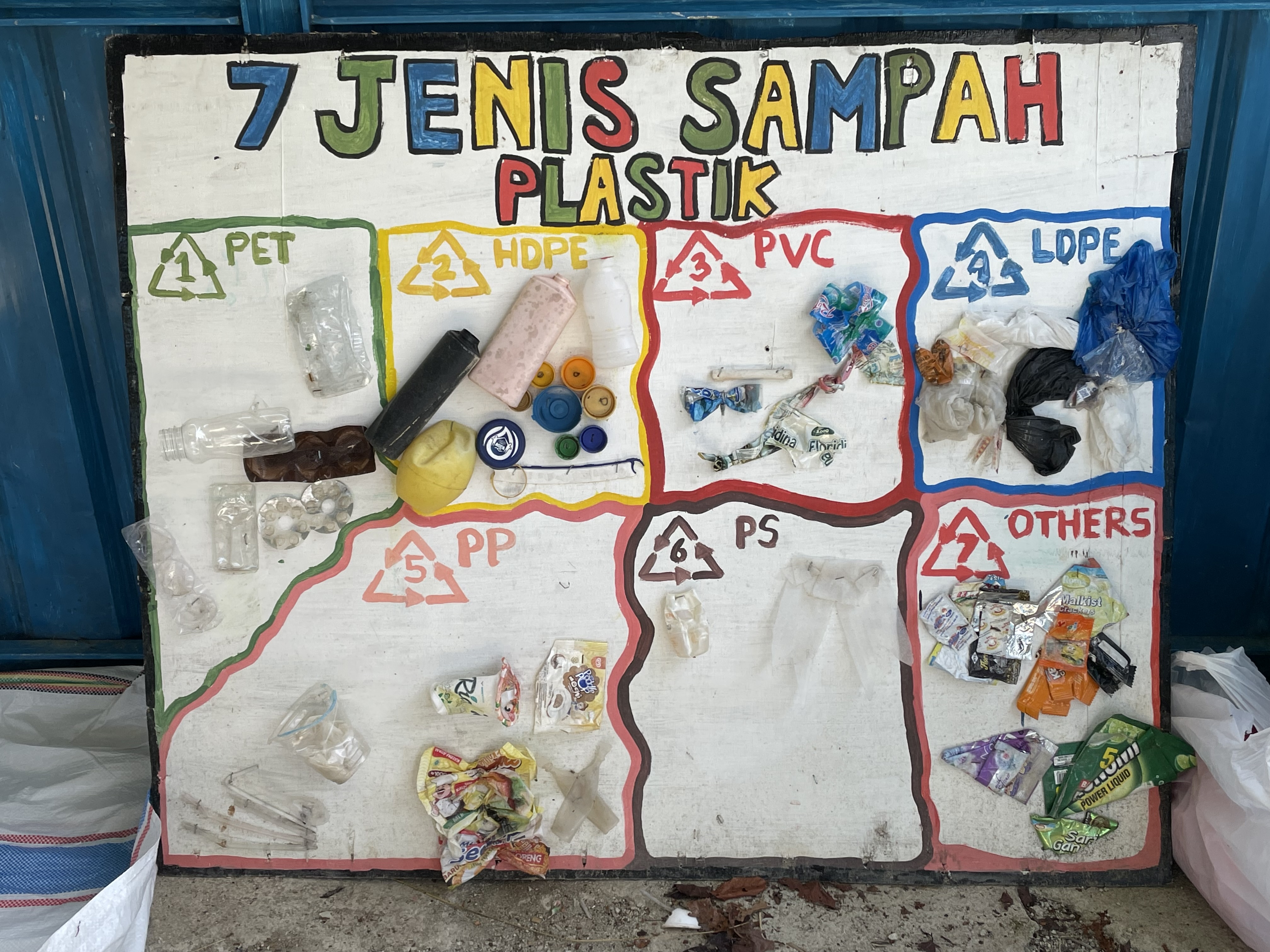Opportunity abounds in Indonesia’s Labuan Bajo to become a prime green destination
June 24, 2022

LABUAN BAJO – Lying ten minutes to the emerald-colored Timor Sea, the Gorontalo elementary school in the eastern Indonesian town of Labuan Bajo could offer a vital lesson in waste management, transforming this slice of paradise into the next green destination.
I recently visited Labuan Bajo on Flores Island, as part of my monitoring mission of one of UNDP's waste management projects. The seaside town is the main gateway to the famed pre-historic dragon national park island of Komodo, as well as a transit point for tourists exploring the neighboring tropical islets.
The school is part of UNDP's Marine Plastic Litter Reduction Project on community waste management which operates in partnership with the Ministry of Environment and Forestry, Coordinating Ministry of Maritime and Investment Affairs, and Korea Environment Cooperation. My visit provided clues on worked and what needed to be done differently-—to enable a more meaningful program on a bigger community in the island and beyond.
With support from the Korea International Cooperation Agency (KOICA), we partnered with a local NGO and the school administration to transform the school into a model location for implementing the holy grail of green and sustainable living: Reduce, Reuse and Recycle. As a result, the school now has a clear ‘standard of operation’ to ensure zero waste and to divide trash in separate bins. School children have also been taught the importance of green living through storytelling and through their Math and Science classes.
While it pleases me to find that many components of the school's practices have been embraced by the greater community, I also reflected on how these practices could help us develop a more impactful program on a bigger scale. These lessons might also give significant input to our policy advisory work for the Indonesian government. Indeed, we believe that by integrating policy and practice, we can have a genuine impact on the people of Indonesia.

So, what are some of the top take-aways? First, sustainability requires a comprehensive strategy that includes resources, community ownership, and knowledge transfer. For example, as part of zero-waste living, the school has installed a machine to convert plastic waste into motor oil. However, this solution may not be the most viable in terms of cost and environmental effectiveness. We should deepen our community engagement and start collaborating with youth groups to boost awareness on the dangers of plastics on our environment. Such initiatives could include community workshops, beach clean-ups, promoting plastic-free products, as well as close collaboration with local and national governments.
Second, change of behavior is possible through advocacy. The school’s green practices involving approximately 100 and a dozen teachers may be miniscule in terms of number, but the ripple effect of green living was quite apparent. Community members around the school told me that the school’s practice under the “My Trash, My Responsibility” initiative has been replicated by the home village with the installation of numerous sorting bins throughout the village, with volunteers combing through the area periodically to sort waste.
To give you a better idea of the significance of the lessons learned, let me take you on a quick tour of Labuan Bajo's magnificent terrain.. Visitors arriving at the town's major port are greeted by a stunning panorama of rolling hills against blue-green seas. And yet, part of the pathway which connects the port to the main road is littered with waste. Traces of food waste, presumably from hospitality operators, were also found in the town’s roads.
This situation is not the fault of the community, yet they bear the brunt of the issues. Waste problems in a growing holiday destination, particularly marine garbage, are caused by complex and underlying issues such as unchecked physical infrastructure, rising sea levels, and a lack of collaboration among hospitality stakeholders, not unique to this region.
On the other hand, communities – as the school has demonstrated – may well hold the key to address these concerns. Having interacted with the community during my visit, I got a feel for their determination to set things right. Putting the communities in charge for future waste management initiatives, therefore, should be the way forward.
Nonetheless, I recognized that such attempts would be futile unless the private sector also commits to genuine partnership with communities. And as Labuan Bajo approaches a tipping point in its tourism boom, it has become evident that the comprehensive solution rests in embracing cleaner, zero-emission waste business methods.
Would a zero-emission circular economic model work? Perhaps it’s time to explore more.

 Locations
Locations